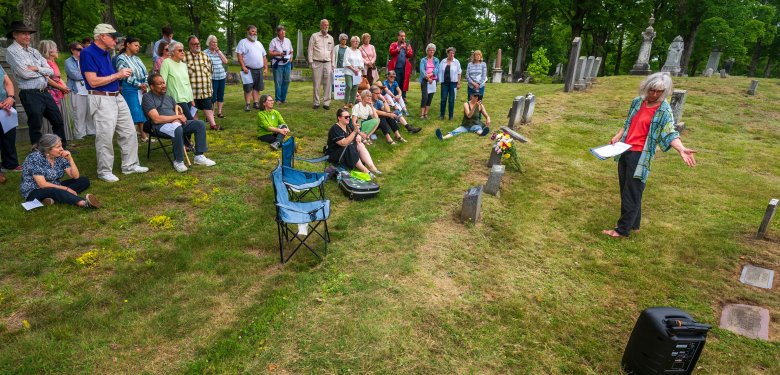
WATERVILLE — It was the late spring of 1865. The Civil War had ended with Robert E. Lee’s surrender at Appomattox Courthouse, and Congress had approved the 13th Amendment, dissolving the institution of slavery in the U.S.
Former slave Samuel Osborne stepped foot in Maine for the first time.
He had accompanied Col. Stephen Fletcher from Danville, Virginia, back to Fletcher’s hometown of Waterville, where he graduated from Colby College in 1859 before becoming a military police marshal during the Civil War.
Osborne was perhaps the only Black man in Waterville at the time — only about 100 non-Indigenous people of color were recorded in the entire state of Maine by the time Osborne died in 1904.

His family soon became a central part of the Waterville community. And that community, 160 years after Samuel Osborne first set foot in the city, honored the Osborne legacy at the family’s burial site in Pine Grove Cemetery to celebrate Juneteenth, the federal holiday that commemorates the end of slavery.
“This is the point — it’s local history,” said Elizabeth Leonard, a Civil War historian and former Colby professor who helped organize Thursday’s celebration. “Let’s remember, and let’s not let them erase it.”
About 40 people attended, which Leonard said was a promising showing, given the idea for the celebration had only been put together four days prior.
She and a few friends spent several hours searching the cemetery for the Osborne gravesites, with help from Waterville’s Parks & Recreation staff. The family plot was, notably, buried right alongside white community members.
After Leonard made opening remarks about Juneteenth, Mayor Mike Morris read the city’s holiday proclamation, and Ward 2 Councilor Flavia DeBrito spoke about the importance of the holiday to her own life.

DeBrito said her mother experienced the legacy of slavery in Cape Verde, where she grew up and which Portuguese colonists used as a hub for the transatlantic slave trade for hundreds of years. Slavery was abolished in 1878, but Cape Verde did not gain its independence from Portugal until 1975.
“After reading (the Osbornes’) story and really going back to that, it’s like, we can’t go back. We can’t go back,” DeBrito said. “That’s why I’m standing here today.”
Osborne was born into slavery in 1833 in the Tidewater Region in Virginia and married a woman named Maria, who also grew up enslaved on the same plantation.
The two were freed toward the end of the war, and Samuel was able to bring Maria and his father, Richard, to Waterville after a few months, Colby College records say. When Richard died in early 1866, Samuel took over his job as Colby’s janitor, a position he held for nearly 40 years.

Two of Samuel and Maria’s children, Edward and Marion, were among Colby College’s first Black students. Edward played on Colby’s baseball team and, in 1900, Marion became the first Black woman to graduate from the college.
Their daughter Alice Osborne became a teacher in Waterville’s public school system and later was a bookkeeper in a local doctor’s office. Her obituary was featured in the Morning Sentinel after she died in January 1968 at 97 years old. She was a lifelong resident of Waterville and lived for decades in an Ash Street house that has since been torn down.
Miko Rusch, who has lived in Waterville for 12 years, said he had not heard of the Osbornes before Leonard began advertising the celebration, but he was inspired that Leonard brought the family’s history to light Thusrday.
“Right now, anything that doesn’t have to do with white, straight culture is trying to be erased,” Rusch said. “I think it’s extremely important to recognize all the people who have made the history of the United States — especially (marginalized) people.”
Leonard opened the celebration with remarks about Juneteenth as a federal holiday.

On June 19, 1865, about two months after the end of the Civil War and a month after Samuel Osborne first arrived in Waterville, Gen. Gordon Granger told crowds in Galveston, Texas, that slaves were freed and afforded equal rights with their former enslavers. Texas, being the westernmost area in the defeated Confederacy, was the last Southern state to learn definitively of the end of both the war and the institution of slavery.
Juneteenth celebrates the anniversary of Granger’s announcement — and more generally the end of slavery and the new freedom for Black Americans. It was created as a federal holiday by Congress and former President Joe Biden in 2021, becoming the first new federal holiday since Martin Luther King Jr. Day in 1983.

“Someone on Facebook today argued to me that Juneteenth is a ‘Black holiday,'” Leonard said during her opening remarks. “It is not a Black holiday. It is an American holiday. Slavery was an American institution.”
But, Leonard said, given the Trump administration’s ongoing hostility toward diversity, equity and inclusion policies and the preservation of Black history, the future of Juneteenth as a federal holiday is not guaranteed. It has to be actively fought for, she said.
“This is the past that Juneteenth commemorates,” Leonard said, referring to the Osborne family graves beside her. “I would argue that at all costs — and I’m really worried about this right now — we must protect this meaningful American holiday. I worry that it’s going to be canceled.”

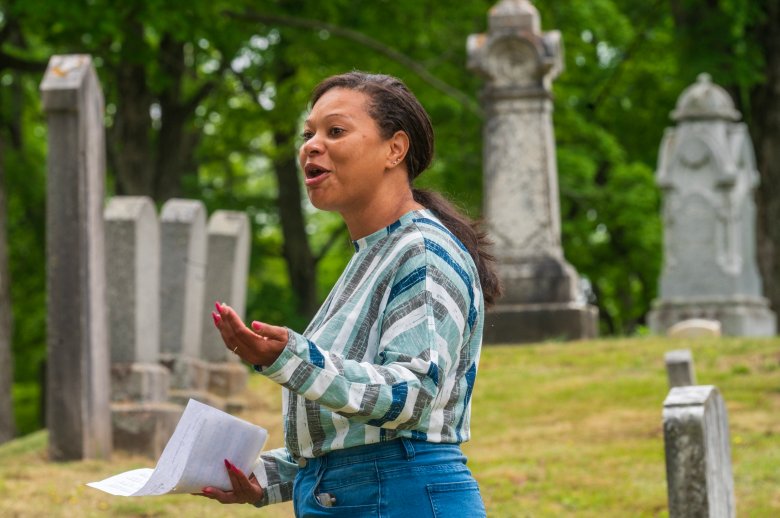
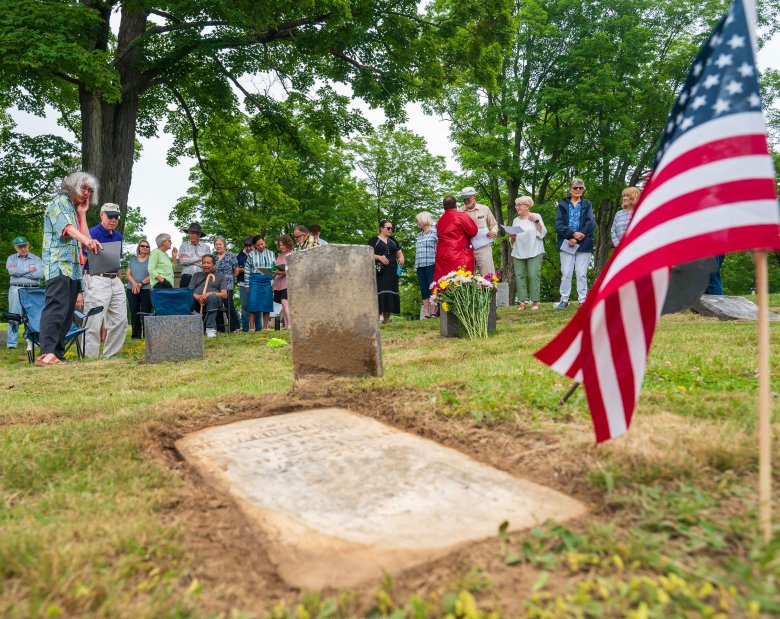
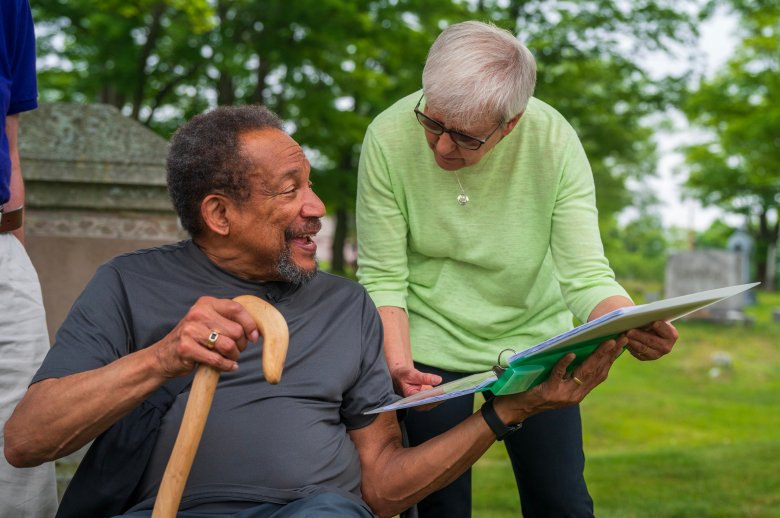


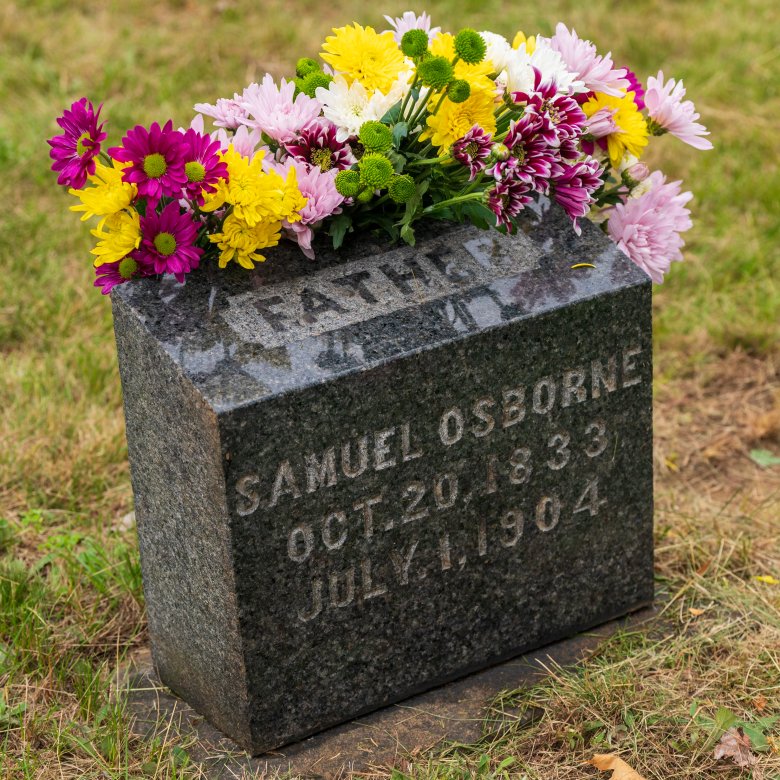
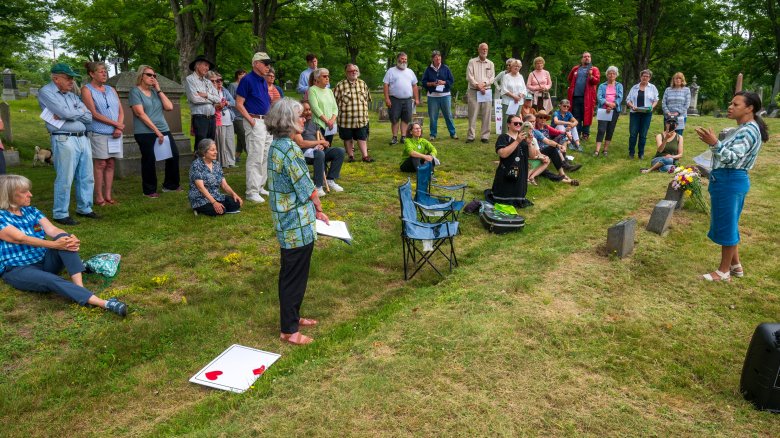
We invite you to add your comments. We encourage a thoughtful exchange of ideas and information on this website. By joining the conversation, you are agreeing to our commenting policy and terms of use. More information is found on our FAQs. You can modify your screen name here.
Comments are managed by our staff during regular business hours Monday through Friday as well as limited hours on Saturday and Sunday. Comments held for moderation outside of those hours may take longer to approve.
Join the Conversation
Please sign into your CentralMaine.com account to participate in conversations below. If you do not have an account, you can register or subscribe. Questions? Please see our FAQs.